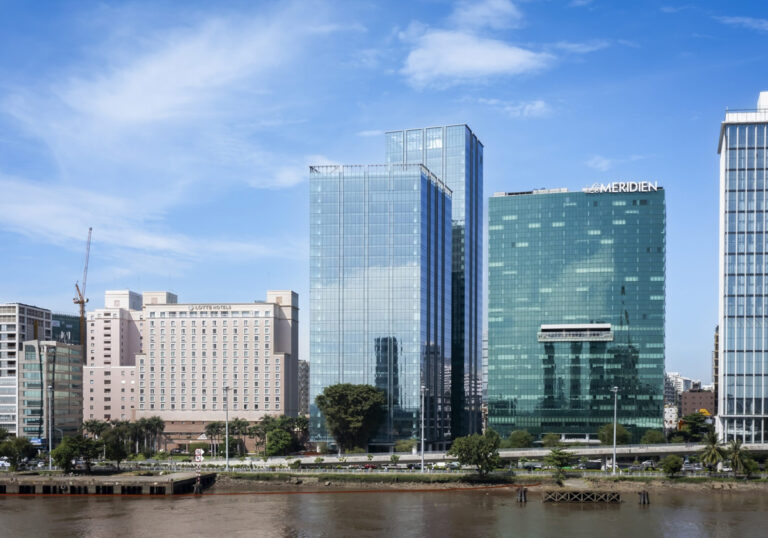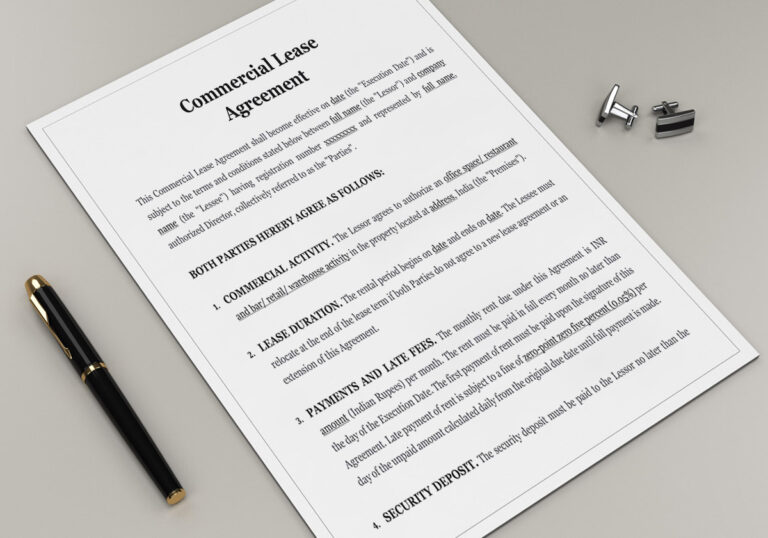Hidden Costs When Renting Office Space in Vietnam
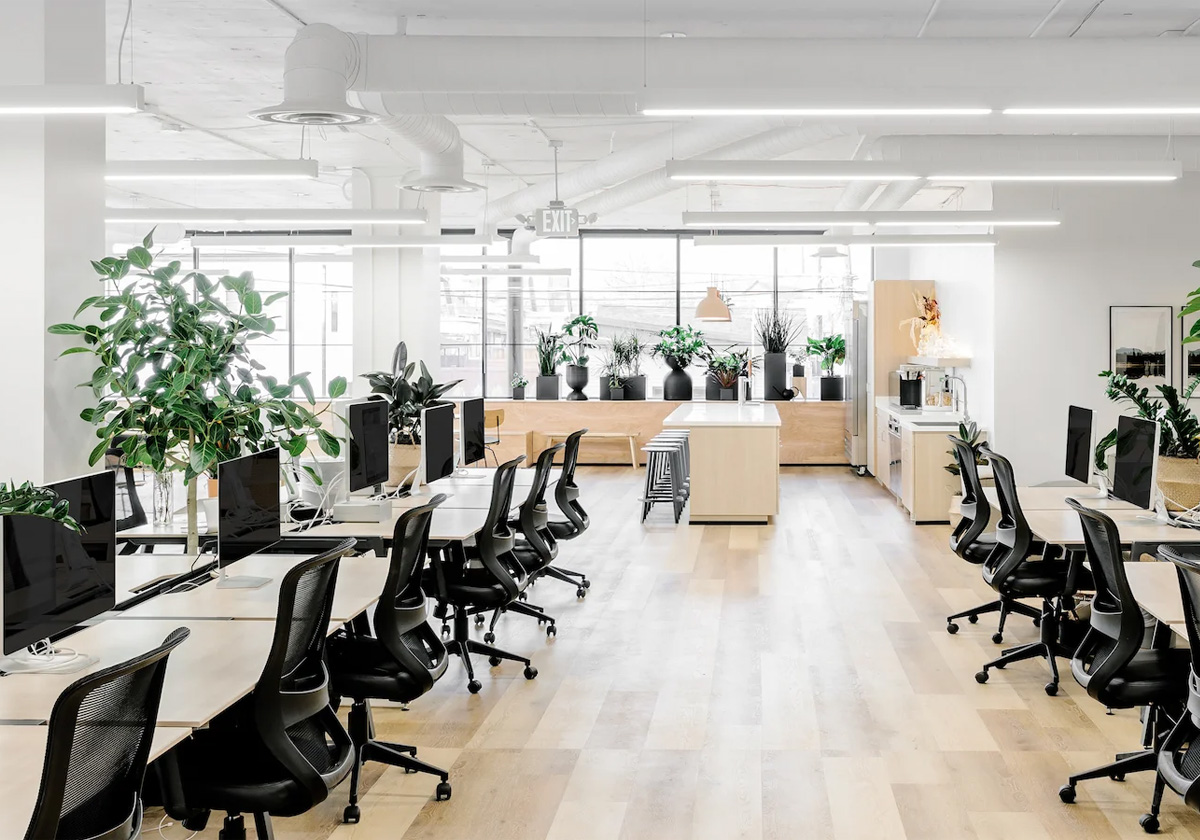
The cost of operating an office in Vietnam goes beyond just rent and employee salaries. Many businesses, especially foreign companies newly entering the market, often overlook “hidden costs” such as system maintenance, increased utility bills due to the tropical climate, legal expenses, or losses from inefficient workflows. Identifying and controlling hidden costs office in Vietnam is a key factor in ensuring financial efficiency and sustainable operations for businesses.
Table of Contents
1. Usage-Based Hidden Costs
When operating an office in Vietnam, businesses often focus on fixed costs such as rent, employee salaries, or office equipment. However, some usage-based hidden costs can significantly increase total operational expenses if not properly anticipated and managed. These costs often arise from daily operations and can vary depending on the business scale, resource usage, and employee habits. These typically include:
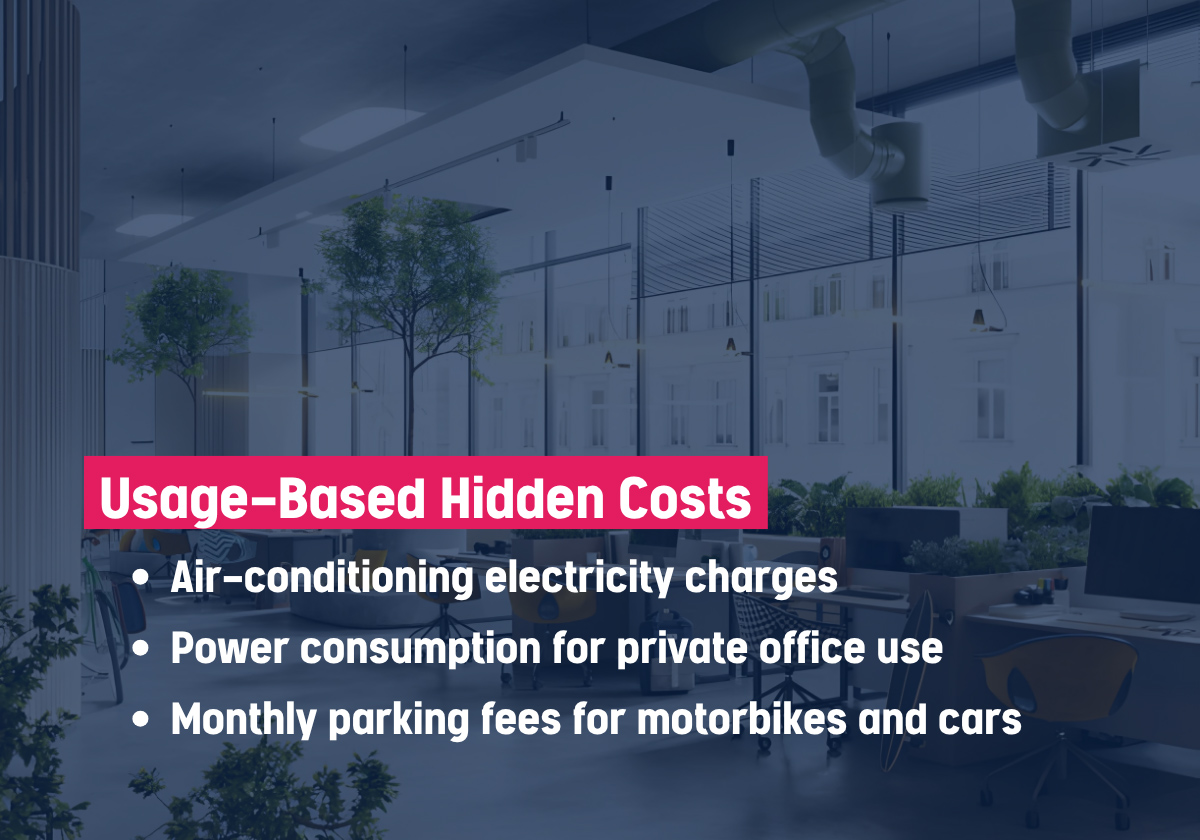
1.1 Air-conditioning electricity charges
Electricity costs for air conditioning systems are one of the significant hidden costs office in Vietnam, especially given the year-round hot and humid climate. Office buildings often charge air conditioning electricity fees separately, based on usage hours or office area. Many businesses fail to anticipate the high power consumption caused by continuous air conditioner use, particularly during summer months. If not managed effectively, this cost can significantly increase the total operating expenses, impacting the company’s budget.
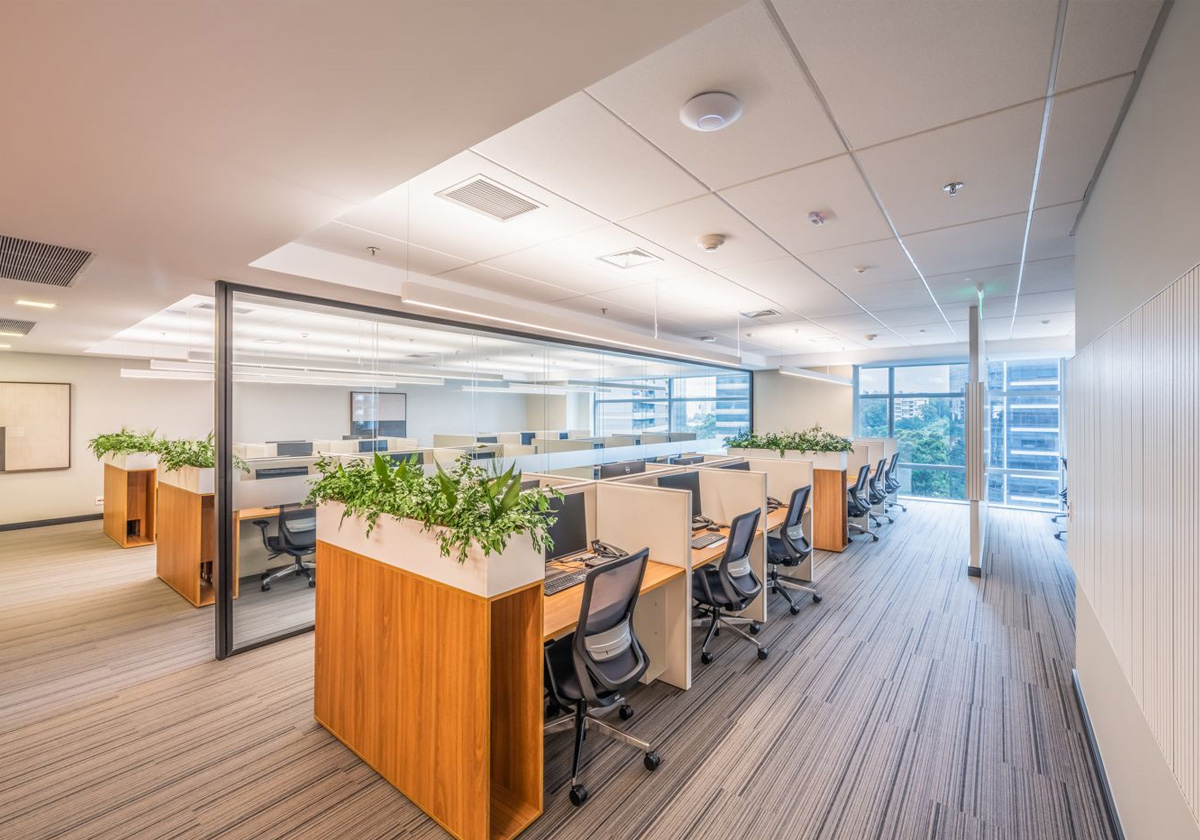
In reality, an average office may have to pay from 500,000 to 2,000,000 VND per month just for air conditioning, depending on the unit’s capacity and frequency of use. Additionally, lack of regular maintenance or using old air conditioning units can increase these costs, as inefficient machines consume 1.5 to 2 times more electricity than modern systems.
1.2 Power consumption for private office use
Power consumption costs for privately used areas within the office (such as personal workspaces, meeting rooms, pantries, etc.) are also a significant hidden expense that businesses in Vietnam often underestimate when budgeting. These areas often use multiple electrical devices such as computers, monitors, projectors, and dedicated lighting systems.
In Vietnam, commercial electricity rates are typically higher than residential rates, ranging from 2,500 to 4,000 VND/kWh depending on the time of use. For example, an office with 10 separate rooms, each using an average of 5 – 7 electrical devices for 8 hours a day, may incur electricity costs ranging from 5 – 15 million VND per month solely for power consumption.
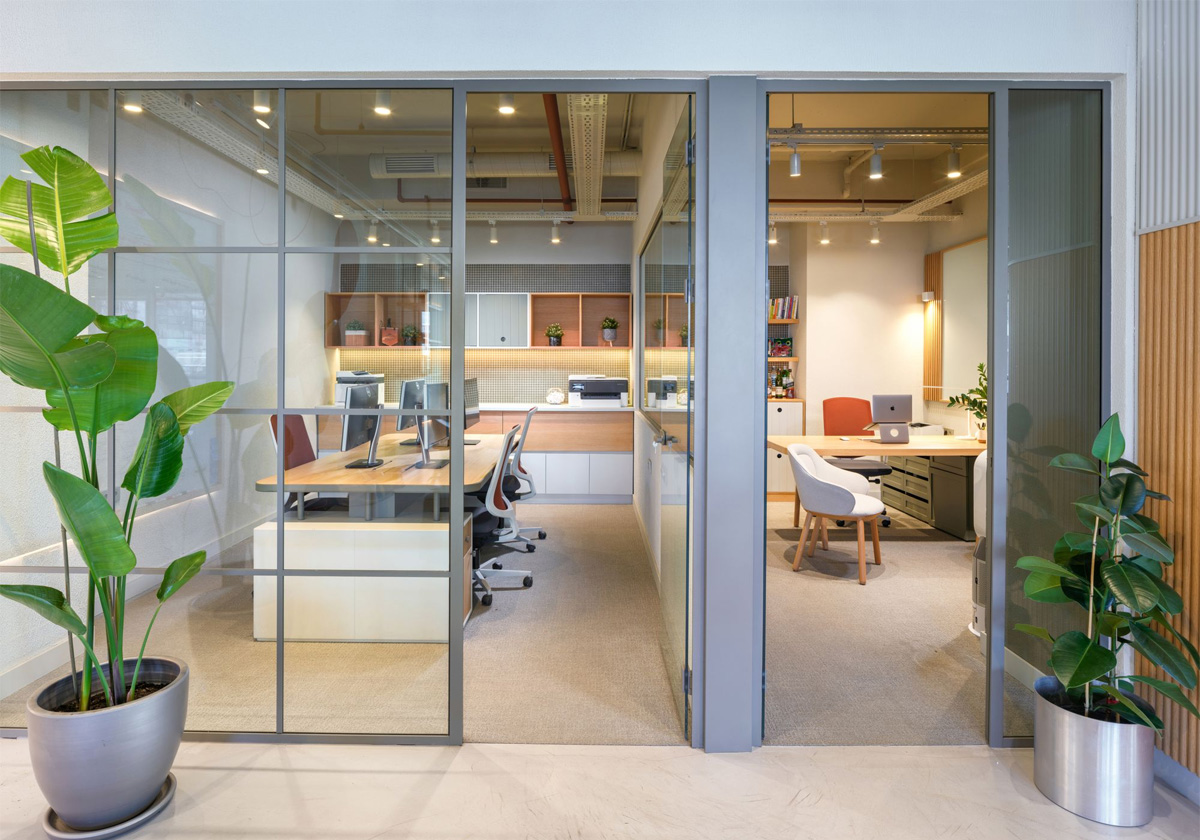
In addition, another factor driving up costs is inefficient device usage habits, such as leaving computers on standby, not turning off lights when leaving a room, or using outdated equipment with low energy efficiency.
1.3 Monthly parking fees for motorbikes and cars
One of the hidden costs that many businesses in Vietnam often overlook is the monthly parking fee for motorbikes and cars. In major cities like Hanoi and Ho Chi Minh City, where motorbikes are the primary mode of transport for most employees and cars are increasingly common among management, parking fees can accumulate into a significant expense.

On average, motorbike parking fees range from 100,000 to 300,000 VND per month per vehicle, depending on the building’s location and parking facility quality. Meanwhile, car parking fees are significantly higher, typically ranging from 1,500,000 to 3,500,000 VND per month, especially in central areas or premium office buildings.
2. One-Time & Irregular Costs
One-time and irregular costs are expenses that do not occur regularly but can have significant financial impact when they arise. Although unpredictable, managing these costs carefully is essential for accurate budgeting and avoiding unexpected financial burdens. Below are the one-time and irregular costs that businesses need to pay close attention to:
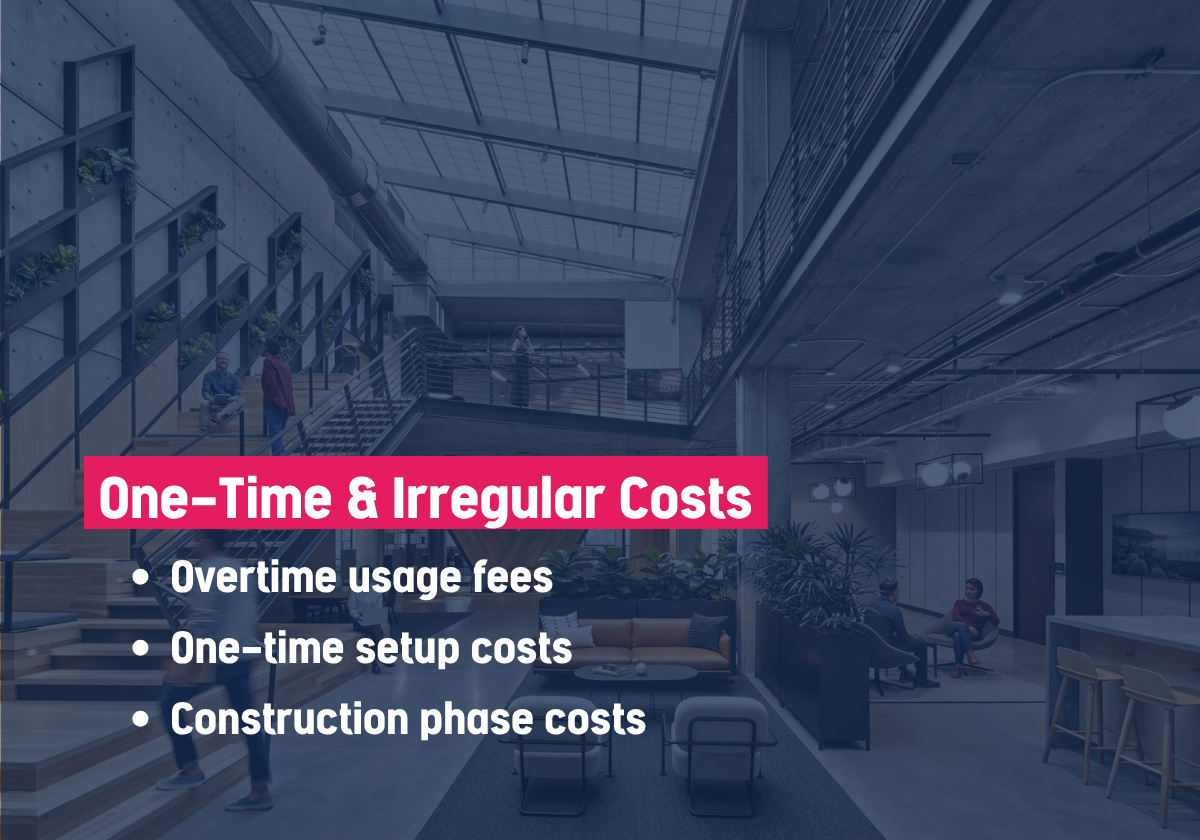
2.1 Overtime usage fees (outside standard working hours)
Overtime usage fees are irregular costs that can significantly impact a business’s budget. Many office buildings in major cities like Hanoi and Ho Chi Minh City charge additional fees for electricity, air conditioning, elevators, or security services used outside standard working hours. These fees typically range from 100,000 to 500,000 VND per hour, depending on the office size, type of service used, and the building’s policy.
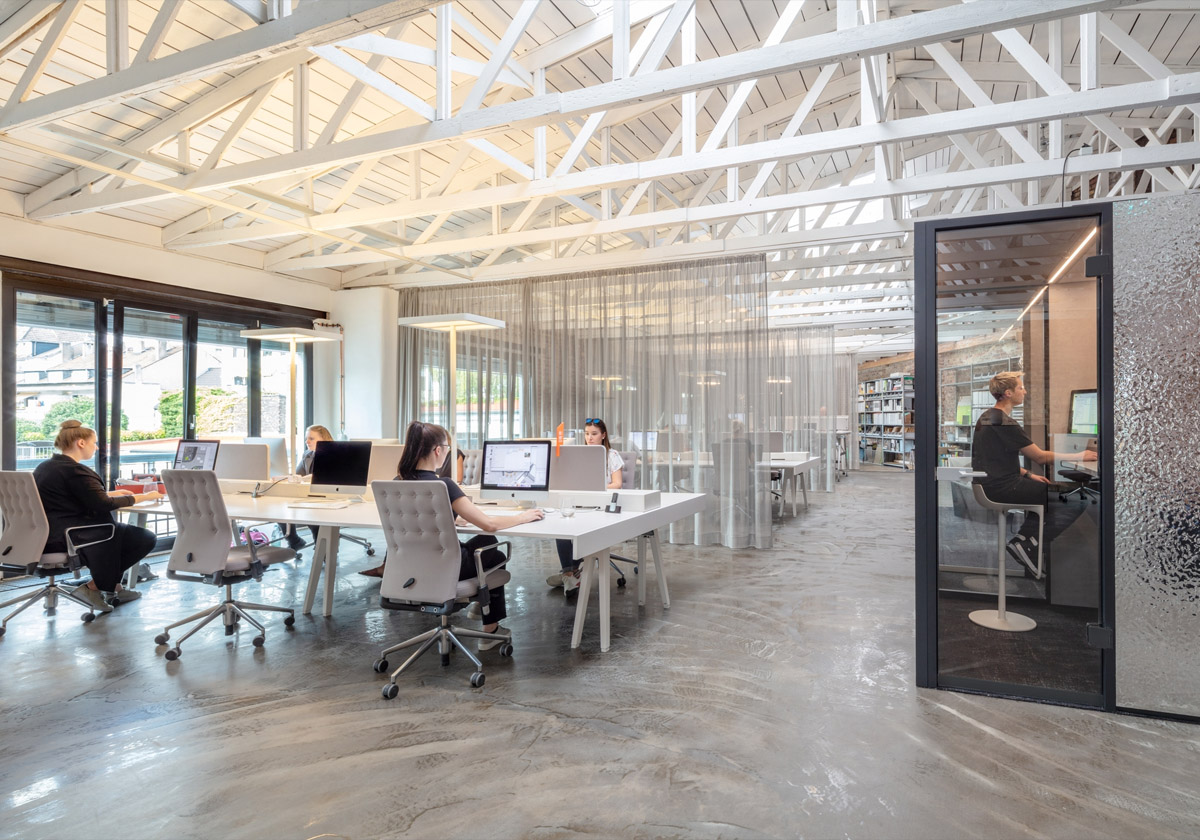
If a business does not carefully calculate overtime frequency or fully understand the terms in the lease agreement, these costs can quickly exceed the planned budget.
2.2 One-time setup costs (internet cabling, signage, security systems)
One-time setup costs usually refer to the initial expenses for the office, including internet cabling installation, company signage, security systems, furniture purchase, and interior decoration. These costs are often underestimated or not fully budgeted by businesses, leading to budget overruns during the initial phase.
– In Vietnam, the cost of installing internet cables and internal network systems for an average office can range from 10 to 50 million VND, depending on the size and technical requirements.
– Installing company signage often incurs considerable costs for design, production, and installation.
– Security systems, such as surveillance cameras or electronic door locks, can further increase costs, especially when high-tech solutions need to be integrated.
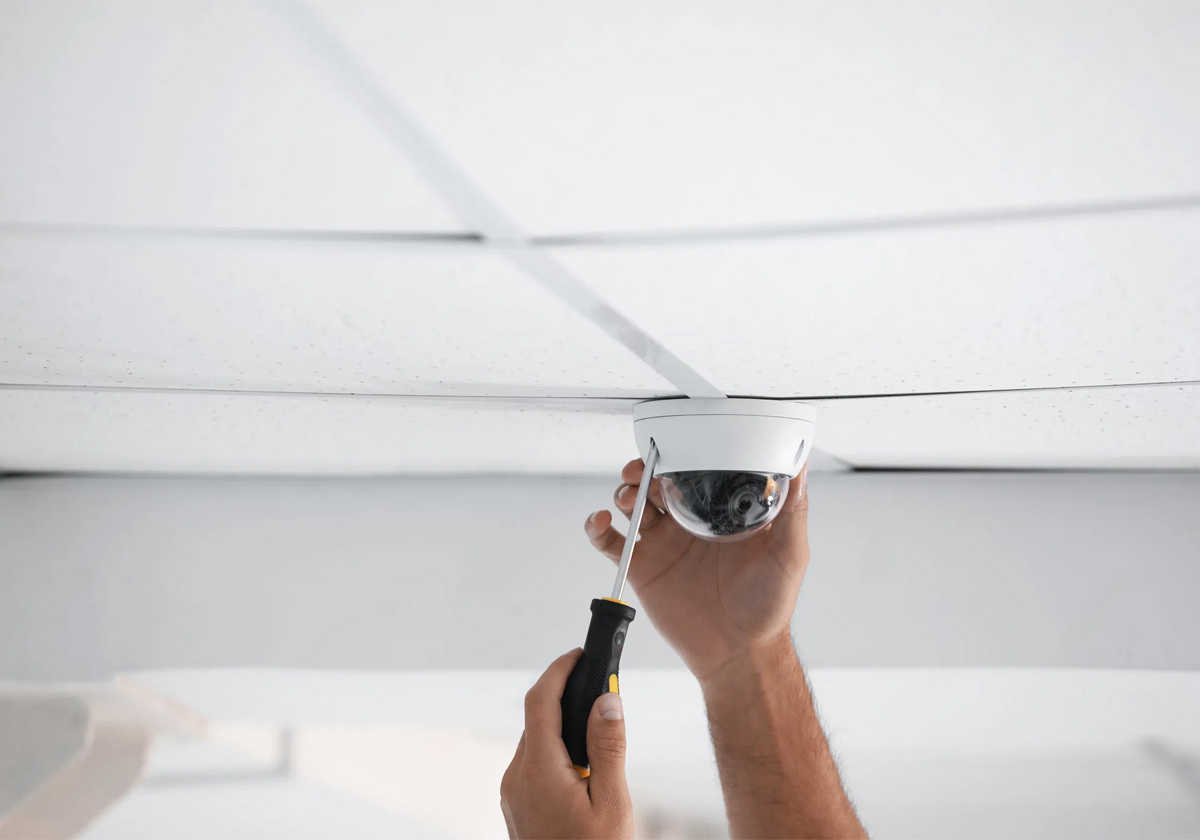
Careful planning and vendor negotiation are essential to control these one-time costs and ensure a smooth start to office operations.
2.3 Construction phase costs (electricity, management fees during fit-out)
The construction and fit-out phase of an office often involves hidden costs, particularly for electricity and building management services. During this period, businesses must cover electricity usage from construction equipment such as drills, grinders, welding machines, and temporary lighting systems.
These electricity costs typically range from 5 to 15 million VND, depending on the duration and intensity of the work. Additionally, many buildings in Vietnam apply management fees during the fit-out phase, including supervision fees, elevator use for transporting materials, and cleaning services, typically ranging from 10,000 to 50,000 VND per square meter.
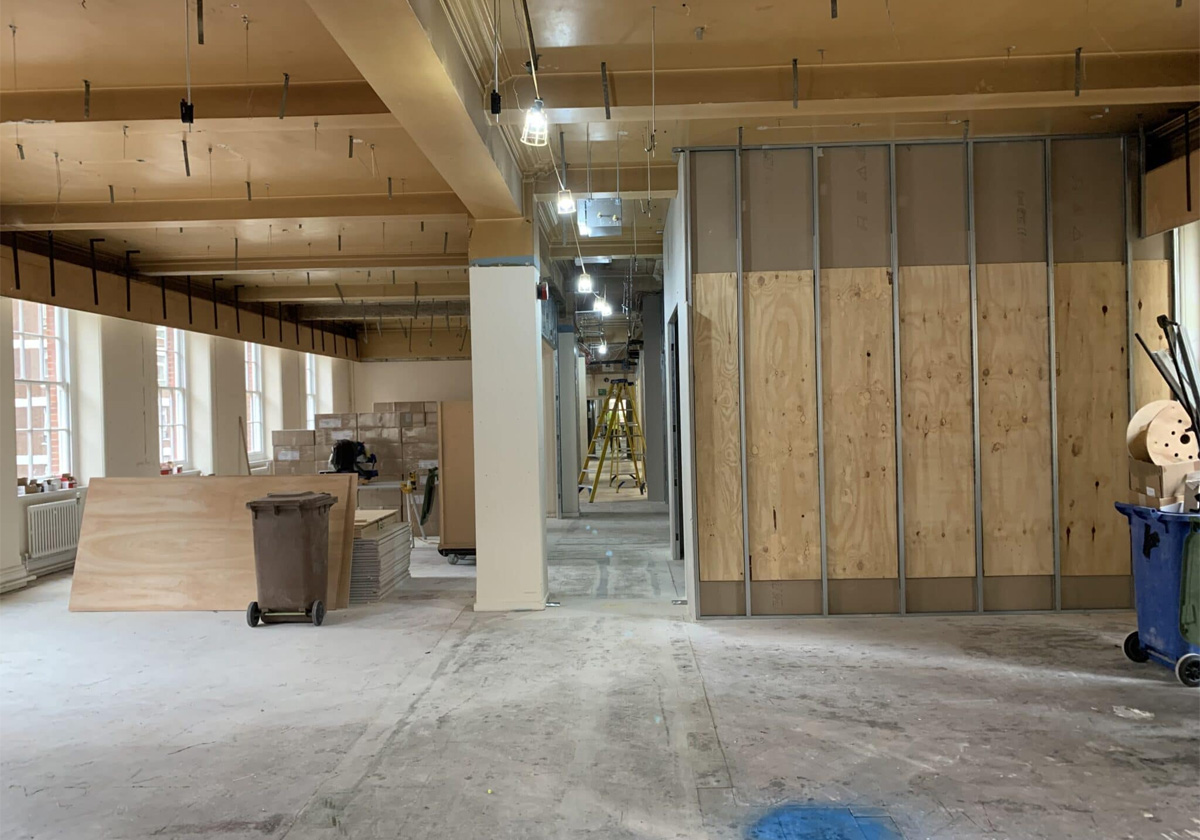
These fees are often not clearly stated in the initial lease agreement, leading to unexpected expenses. To manage them, businesses should request a detailed quotation from the building management before construction and plan the fit-out efficiently to shorten timelines and minimize costs.
2.4 Make-good & reinstatement fees upon lease end
Make-good and reinstatement fees are one-time costs incurred when a business ends its lease and returns the premises. Under many lease agreements in Vietnam, tenants are required to restore the office to its original condition, which may include dismantling partitions, repainting walls, repairing floors, removing installed fixtures, and fixing damages.
These requirements can lead to substantial expenses – often ranging from tens to hundreds of millions of VND – depending on the extent of the modifications made during the tenancy.
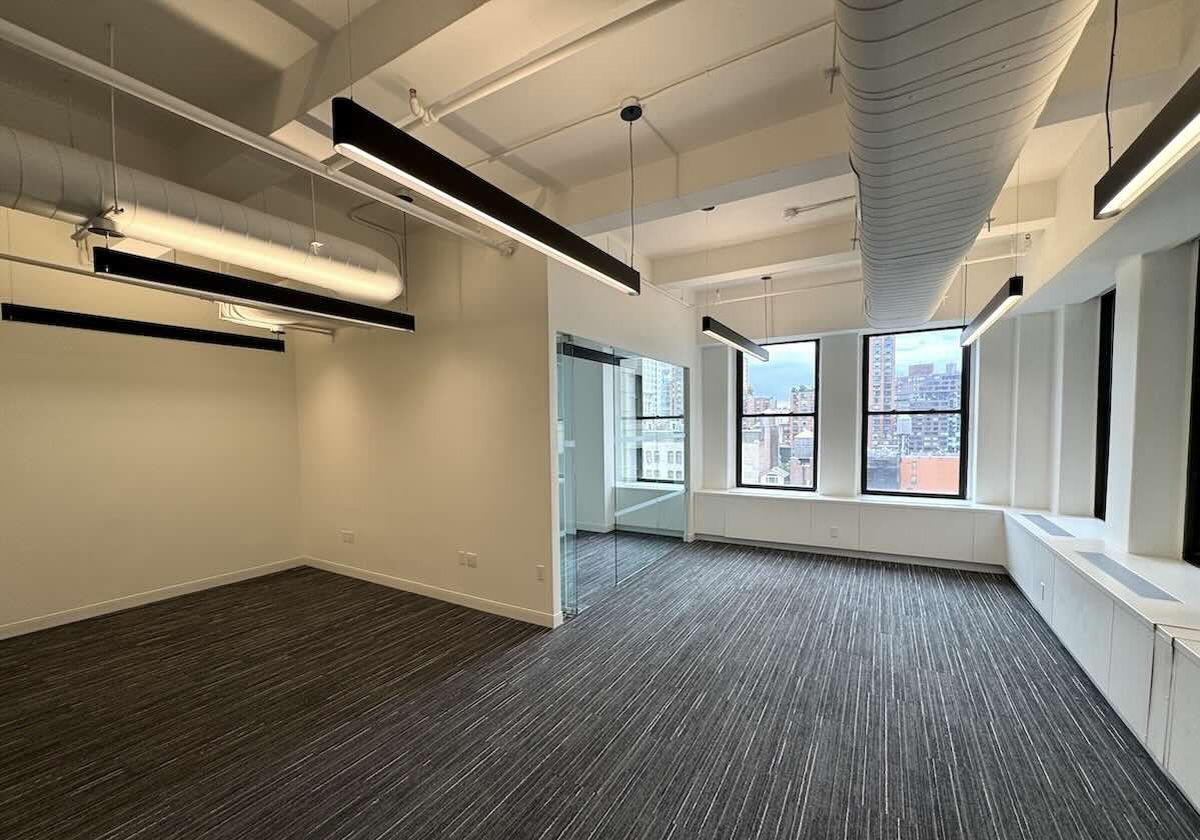
Additionally, if the tenant fails to restore the premises as required, the landlord may hire external contractors at a higher cost and impose penalties. To minimize expenses, businesses should negotiate make-good terms when signing the lease or carry out the restoration themselves to better control costs.
>> See more: Office Space Lease Agreement Template in VietNam
3. How to Avoid Hidden Costs When Renting Office Space
When renting office space in Vietnam, many businesses – especially foreign companies – are prone to incurring hidden costs due to unclear contract terms or a lack of detailed information. Proactively identifying and managing these expenses from the outset helps optimize the budget, avoid legal risks, and ensure more efficient operations. To help businesses control costs and avoid financial surprises from hidden fees, this section outlines specific strategies they can apply:
3.1 Questions to ask before signing the lease
Before signing an office lease, businesses should ask specific questions to the landlord or leasing agent to identify and avoid hidden costs office in Vietnam. These may include:
– Does the lease include service charges (e.g. cleaning, security, elevator maintenance), or are these billed separately?
– Are there overtime usage fees (e.g. for electricity or air conditioning), and what are the rates?
– Is there a make-good requirement at the end of the lease, and what is the estimated cost?
– During the office fit-out phase, will the business be responsible for additional electricity or management fees?
– Is parking available for staff and visitors? What are the monthly parking fees for motorbikes and cars?
– What is the policy on rent increases or service charge adjustments during the lease term?

To avoid misunderstandings, businesses should request written or emailed responses and keep them for future reference. Asking these questions not only clarifies potential hidden costs but also lays the groundwork for negotiation, helping businesses optimize their budgets and avoid financial surprises throughout the lease term.
3.2 Requesting a full cost breakdown (including service charges)
In major cities like Hanoi and Ho Chi Minh City, office rental costs include not only the base rent but also service charges and other additional expenses, which can significantly increase the budget if not anticipated. Therefore, requesting a full cost breakdown is an essential step for businesses to clearly understand and control the associated costs when renting office space in Vietnam.
>> See more: Office Rental Service Fees: Definition and Classification
A cost breakdown should include the following items:
– Base rent: Confirm whether the rent is calculated per square meter and clarify the measurement method used (actual usable area or gross floor area).
– Service charges: Request the landlord to specify which services are included (cleaning, security, elevator maintenance, etc.) and how the fees are calculated (per m2, fixed amount, or based on actual usage).
– Utilities fees: Ask whether electricity, water, and internet costs are charged separately or included in the service charges.
– Initial setup costs: Includes installation fees for internet, company signage and security systems like cameras or electronic locks. Ask the landlord if they provide support or share these costs.
– Overtime usage fees: Confirm the charges for using electricity, air conditioning, or elevators outside standard working hours, as well as the registration procedures required.
– Parking fees: Clarify the monthly costs for motorbike and car parking, the number of allocated parking spots, and any additional charges if usage exceeds the limit
– Make-good and reinstatement fees: Costs to restore the office to its original condition at lease end. Clarify specific requirements such as removal of partitions, repainting walls, and floor repairs, and request a detailed cost estimate.
– Legal and administrative fees: Include costs for business registration at the office address (if required) and contract review fees by a lawyer. Also, confirm whether there are additional administrative fees, such as signage registration fees.
– Other incidental costs: Include periodic maintenance fees, annual rent escalation (typically 5 – 10%), and penalty charges (such as late payments or misuse of premises).

Notes:
– Ask the building owner to provide a detailed written cost breakdown, including sample invoices from previous tenants if available, to estimate actual expenses.
– Compare the breakdown with similar buildings in the area to assess its reasonableness.
– Ensure all fees are clearly stated in the contract or its annex to avoid disputes later.
3.3 Negotiation tips to minimize overheads
Effective negotiation is key to minimizing operational expenses, especially hidden costs, when renting office space. In Vietnam, many lease terms – such as base rent, service fees, and additional charges – can be negotiated if businesses are well-informed and apply the right strategies. Below are some practical negotiation tips companies should consider:
– Negotiate rent-free periods: Many landlords in Vietnam are willing to offer 1 – 3 months of rent-free periods, especially during the office fit-out phase. This is a valuable opportunity to reduce initial setup costs.
– Discuss annual rent adjustments: Instead of accepting a fixed annual rent increase of 5 – 10%, businesses can propose a cap on the increase or tie it to the CPI to ensure adjustments reflect actual economic conditions.
– Negotiate service and utility fees: Businesses should request a clear breakdown of service charges in the lease (e.g., cleaning, security, air conditioning, after-hours fees) and negotiate to remove any components that are not applicable or used.

– Leverage market downturns for better deals: During a real estate market slowdown, landlords are often more flexible with pricing and incentives to retain or attract tenants. Businesses can use this opportunity to negotiate better rental terms or additional benefits.
– Document all agreements in writing: All negotiated terms – such as rent-free periods or service charge reductions – should be clearly recorded in the lease or its appendices to avoid future disputes. Ensure these clauses are reviewed by a legal expert.
To negotiate effectively, businesses should prepare thoroughly, understand the market well, and maintain a professional yet flexible attitude. This strategy not only helps reduce costs but also builds a good relationship with the landlord, ensuring smooth office operations in the long term.
“Maison Office helps businesses find office in Vietnam while optimizing total rental costs and avoiding unexpected expenses.”
3.4 Research the market before leasing
Market research on office spaces is a crucial step that helps businesses gain an overall understanding of rental rates, service quality, and common leasing conditions in their desired area. Knowing similar buildings allows businesses to accurately assess the value of lease proposals, thereby avoiding being overcharged or accepting unfavorable terms.

At the same time, with comprehensive market information, businesses will be more confident during negotiations, gaining leverage to request incentives, discounts, or more flexible terms from landlords. This approach also helps minimize financial risks and ensures the selection of office space that fits both the budget and operational needs of the business.
Don’t forget to seek feedback from other businesses currently leasing in the building, check reviews on platforms, or consult real estate advisory firms. This will provide practical information about service quality, additional fees, landlord attitude, and other potential issues. Such data is crucial for businesses to gain an objective view and make more informed office leasing decisions.
3.5 Importance of legal review and bilingual contracts
Legal review of office lease agreements and the use of bilingual contracts are critical in avoiding hidden costs office in Vietnam – especially for foreign companies. An experienced real estate lawyer or legal advisor can identify vague or unfavorable terms in the lease and suggest revisions to minimize costs. This process also clarifies each party’s responsibilities, helping to prevent future disputes.

For foreign businesses, a bilingual contract (in Vietnamese and English) is essential to avoid misunderstandings due to language barriers. While the Vietnamese version holds legal weight, the English version ensures that all involved parties fully understand the agreement. Both versions should be reviewed by legal experts to ensure consistency and legal validity.
Operating an office in Vietnam offers numerous opportunities but also comes with potential hidden costs – from overtime usage fees, setup expenses to make-good and reinstatement charges. Identifying and effectively managing these hidden costs office in Vietnam enables businesses to optimize their budgets, avoid financial surprises, and ensure sustainable growth in this dynamic market.
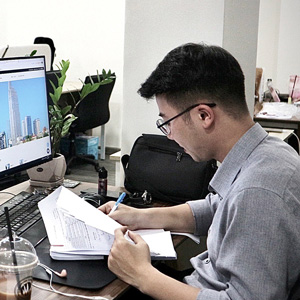
Editor and content team manager at Maison Office.
With over 5 years of experience in consulting and extensive content editing in the real estate services and interior design field. Sharing valuable information with customers, partners, and attracting millions of views.


